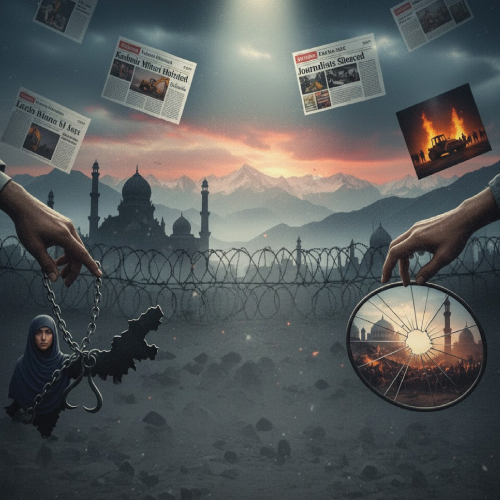“Injustice anywhere is a threat to justice everywhere”. — Martin Luther King Jr.
The transformation of Hindutva from a radical ideology into state policy has redefined the contours of Indian democracy. What began in 1925 as the Rashtriya Swayamsevak Sangh’s (RSS) dream of a Hindu Rashtra has today evolved into a political and bureaucratic machinery that institutionalizes prejudice and normalizes violence. Inspired by European fascism and grounded in the notion that India belongs solely to Hindus, this worldview reduces minorities to outsiders and enemies of the nation.
With the rise of Narendra Modi, a lifelong RSS member, to power in 2014, Hindutva moved from the margins to the mainstream. Through the BJP, the RSS now implements its ideological goals via state institutions. Laws like the Citizenship Amendment Act (CAA) and the National Register of Citizens (NRC) discriminate openly against Muslims, while cultural practices like hijab and halal food are suppressed under the pretense of “national uniformity”. The media, judiciary, and police have increasingly aligned with this narrative, resulting in institutionalized hate and impunity for mob violence.
Mob lynchings, mosque demolitions, and economic boycotts have become normalized political tools. In Kashmir, this ideology finds its most complete expression. Since August 2019, when India revoked Articles 370 and 35A, the region has endured unprecedented militarization, mass detentions, and demographic engineering. Laws and land seizures are systematically altering the region’s identity while dissenting voices, such as journalists, human rights defenders, and activists are silenced under draconian laws.
The implications extend beyond India’s borders. Hindutva’s normalization of hate emboldens global far-right movements and threatens the principles of secularism and pluralism. The world once united against apartheid; it must now confront a similar moral challenge in Kashmir. Silence only nurtures impunity.
The struggle against Hindutva authoritarianism is not a battle of religions but one for human dignity and justice. The call now is for unity and purpose. Kashmiris worldwide must mobilize, engage international law, harness digital advocacy, and pursue economic boycotts against complicit corporations. Fragmentation and disunity have long weakened the Kashmiri cause; unity remains its greatest weapon.
The struggle for Kashmir is not merely about land, it is about the soul of humanity. As Nelson Mandela said, “Our freedom is incomplete without the freedom of the Palestinians.” Today, we must add: without the freedom of the Kashmiris.
De-Occupy Minds, De-Occupy Lands — End Hindutva Apartheid in Kashmir.

